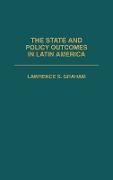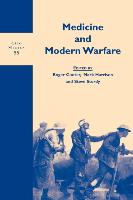- Start
- The State and Policy Outcomes in Latin America
The State and Policy Outcomes in Latin America
Angebote / Angebote:
This study fills a void in the literature of Latin American politics by offering a comprehensive and up-to-date analysis of the state and its bureaucratic components in the various nations of the region. The author notes at the onset that the complexity of the state apparatus in Latin America--ranging from the entrenched bureaucracy of Brazil to the minimal administrative capabilities of Nicaragua--presents both a challenge and a problem for analysts. His unique contribution here is combining an overview of public bureaucracy in Latin America with a series of country and regional profiles. With this basis for analysis established, Graham focuses on changes in the state, the society, and the economy that have occurred over the past two decades in order to develop a set of new perspectives on Latin American politics and economics. Organized into three sections, the study begins with three chapters that address the centrality of the state, the structural dimensions of the Latin American public sector, and issues in administrative reform. Country profiles of Mexico, Brazil, and Nicaragua and a study of regional variations in development policy make up Part Two.
The final section includes comparisons of Latin American nations with selected European nations--an unusual juxtaposition that further enhances the readers understanding of the Latin American experience. Throughout, three themes tie the analysis of the state to its broader context in the surrounding polity, economy, and society: the performance of the state in the provision of basic services, the spatial dimensions of public administration and management, and the extension of state activities throughout society. The author's analytical framework thus entails identifying the structures that condition policy implementation, clarifying the spatial dimensions that shape public policy, and utilizing intergovernmental relations and field administration constructs to establish the centralization/decentralization mix required to reintegrate politics with policy and with organizations in the pursuit of more effective programs.
Folgt in ca. 15 Arbeitstagen




